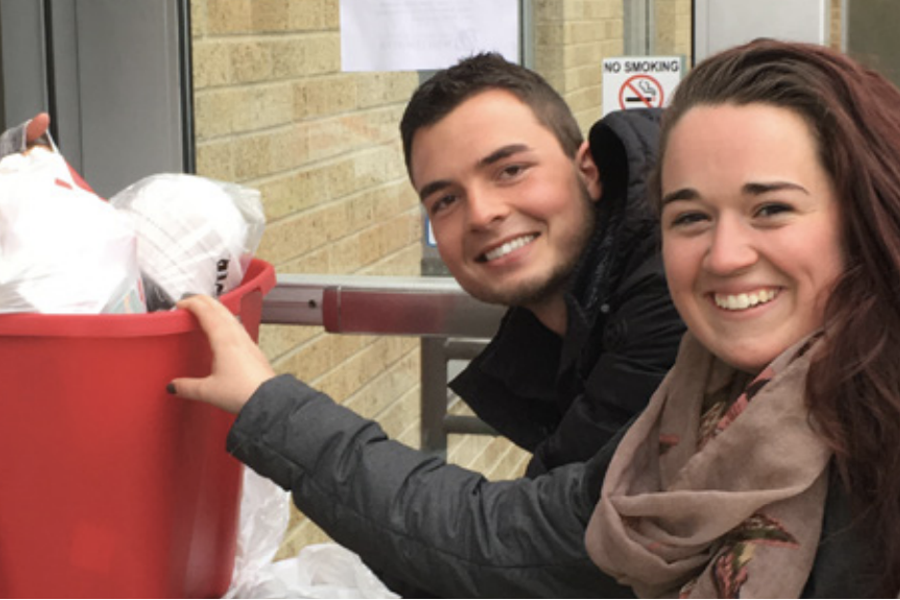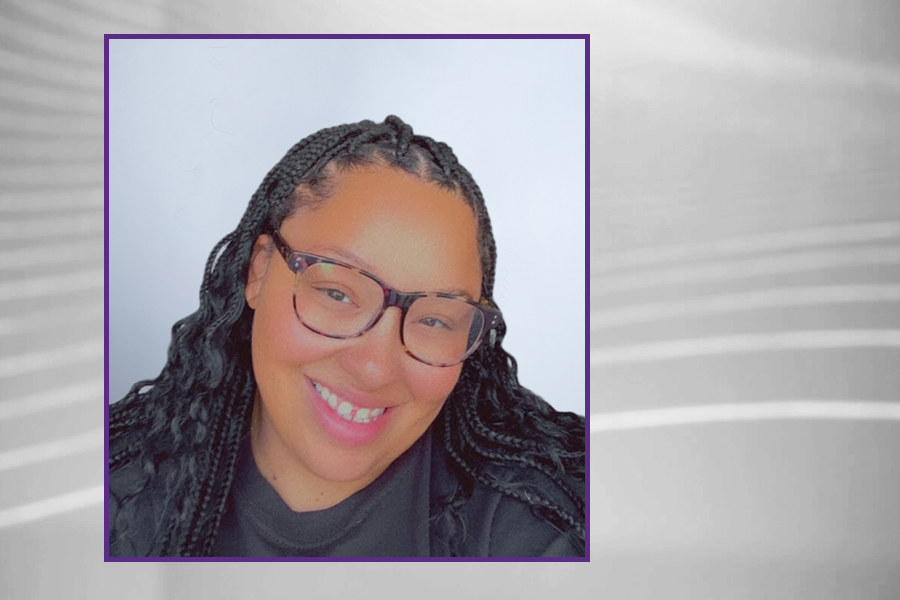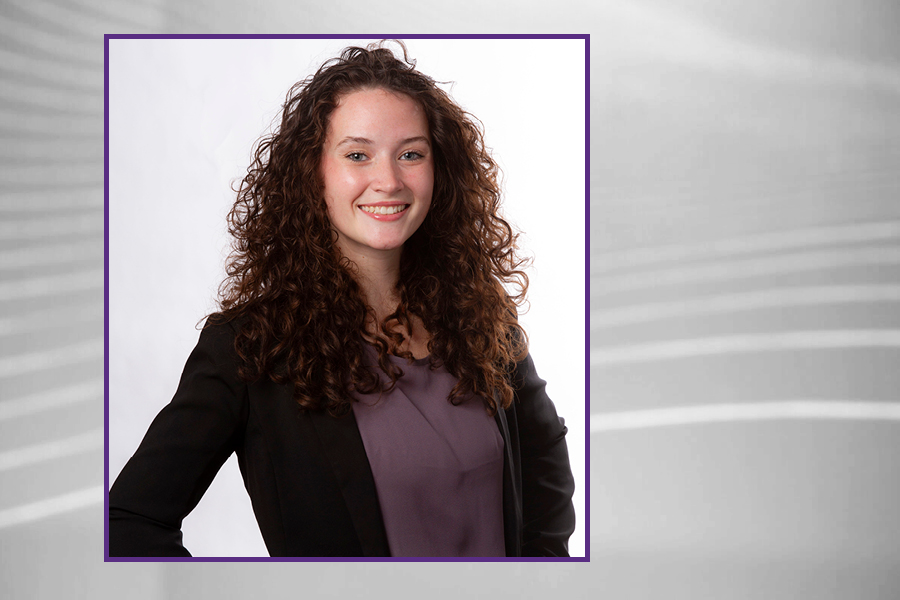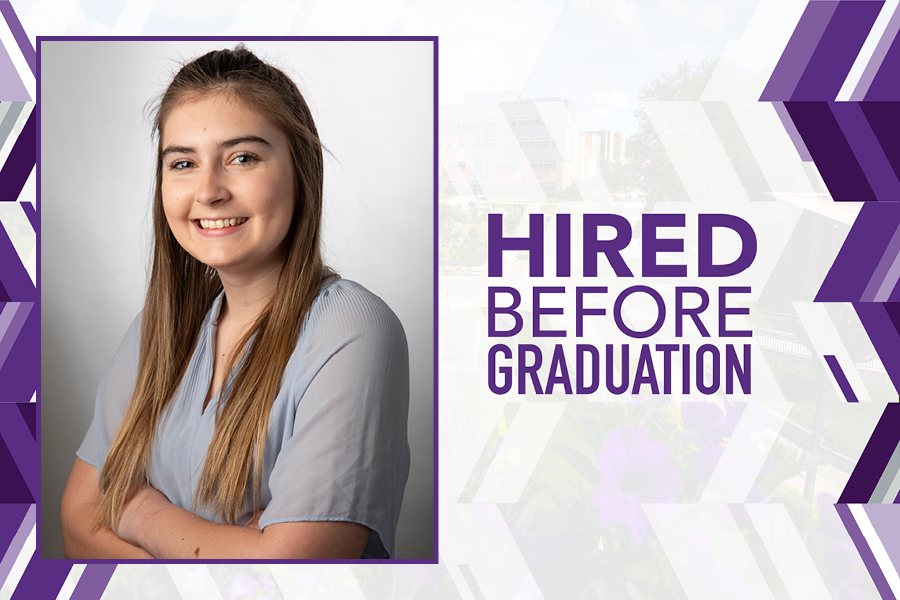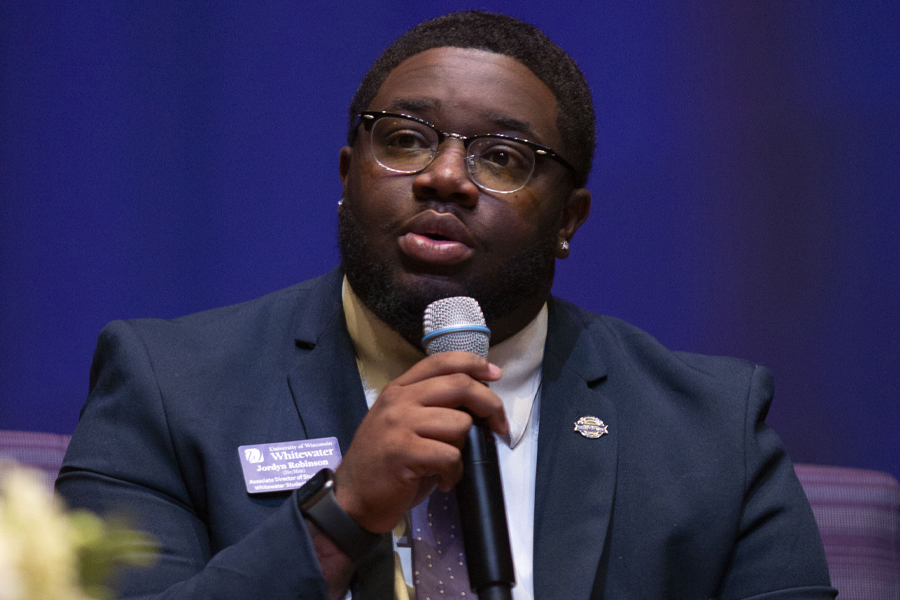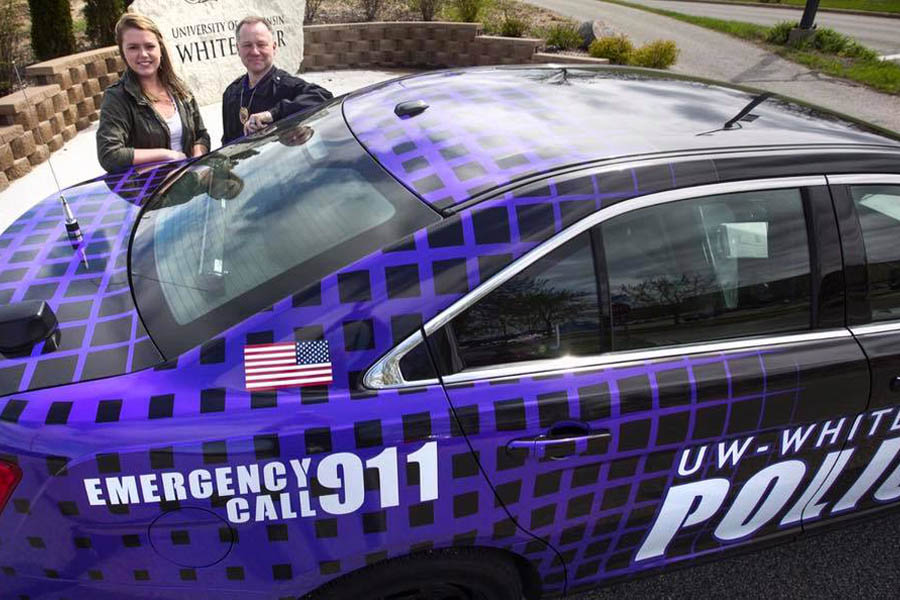CORPORATE AND HEALTH COMMUNICATION
Bachelor's Degree Program
As businesses become more strategic, sophisticated and intentional in how they approach and interact with stakeholders, there’s a growing need for business-savvy communication professionals who can deliver messages — and results.
Health Communication jobs in the public and private sector are also on the rise. According to the U.S. Bureau of Labor Statistics, employment in the healthcare field is projected to grow by more than 7% over the next decade - faster than the average for all occupations. This growth, coupled with a greater focus on public health promotion in many communities, means there’s a significant need for skilled communicators with knowledge of the healthcare landscape.
Specializing in Corporate and Health Communication will allow you to stand out among applicants for these increasingly important roles.
In addition to our on-campus program, we offer the same high-quality curriculum and instruction in an online format.
CAN WE BRAG A LITTLE?
Why study Corporate and Health Communication at UW-Whitewater?
UW-Whitewater’s communication program recognizes — and is responding to — the growing demand for the specialized skills and knowledge needed to thrive in a corporate or healthcare environment.
Our emphasis in Corporate and Health Communication is a highly engaging program, full of opportunities to interact with the campus and local community — and beyond.
UW-Whitewater is a comprehensive university with plenty of resources and opportunities — yet our program is small enough for meaningful interaction with the faculty.
Have a seat at the table: help corporate executives effectively communicate important issues with stakeholders.
Give organizations a voice: from nonprofit organizations to healthcare conglomerates, help organizations find the best way to communicate at all levels.
Develop a vision: assist companies in improving their branding efforts and connecting with employees, consumers, and community members.
Here are just a few other ways UW-Whitewater stands out:
- Our size allows you more chances to get involved with leadership roles, faculty research assistance and more.
- You will learn how to interact interpersonally, negotiate persuasively and resolve conflicts — which are among the soft skills most desired by employers today.
- Student involvement opportunities include campaigning for important public health issues such as smoking cessation and physical activity for older adults.
- Our program offers considerable flexibility with course selection — and a wide range of classes — which allows you to customize your education to meet your interests and goals.
- Choose a minor or second major to supplement your education and expand your communication career
- Students have multiple opportunities to be involved in projects outside of class - research, community outreach or fulfilling the needs of local/regional business, health, or non-profit organizations.
- Given our focus on engagement and involvement, students often experience professional growth more quickly and reach their potential in ways that may not be possible in other larger-enrollment universities.
What our Corporate and Health Communication students do
Campus opportunities: Agencies and organizations
Students interested in Corporate and Health Communication careers can hone important writing, speaking, strategic planning and creative skills, plus gain industry experience and make connections through several student organizations, including:
Public Relations Student Society of America (PRSSA) – find valuable networking and development opportunities in the student chapter of the #1 national organization for PR professionals.
Forensics Team – enhance your public speaking skills, boost your confidence, and travel across the Midwest as a member of our competitive forensics team.
Zeta Phi Eta - a national professional organization in the communication arts and sciences whose goal is to provide opportunities for sharing professional interests through activities in the fields of communication.
Campus Media: The Royal Purple newspaper, UWW-TV, and WSUW-FM: 91.7 offer Communication students hands-on opportunities.
Hands-on learning opportunities

Corporate and Health Communication students at UW-Whitewater have no shortage of hands-on learning experiences.
Project-based consulting
Many of our courses were designed with practical application in mind. You’ll have the chance to work on true-blue strategy or campaigns for businesses and healthcare organizations.
Internships
We encourage you to pursue an internship at a local (or farther away!) business or healthcare organization.
Learn more about communication internships »
Undergraduate research
Join a faculty member in their research efforts — you might even get a chance to co-author a paper.
Travel study
Gain global experience by enrolling in a travel study, which is an academic class that takes place on campus followed by an international faculty-led course work that typically runs for ten days up to four weeks. This global opportunity is ideal for students who are unable to do a traditional study abroad program or want to build on their global experiences. Students can also study abroad.
Engage in Undergraduate Research
The Undergraduate Research Program (URP) is a high impact practice that gives students the opportunity to apply their knowledge outside of the classroom and dive deeper into their field of interest. URP offers a variety of programs aimed to connect our students with faculty mentors and provide them with enriching research opportunities. This can be in the form of working alongside a mentor as a student researcher, or creating independent, student-led project with a mentor's help. You might help a faculty member conduct interviews or create surveys to understand communication experiences people have at work or help conduct a content analysis of corporate websites and documents. Some of the benefits of taking part in undergraduate research include: further development of oral and written communication skills, experience with collaboration and problem solving, expand on specific skills in an area of interest, and apply knowledge and skills to real-world settings and situations.
Learn more about Undergraduate Research »
What our graduates do
These are only a few of the possible careers with a degree in Corporate and Health Communication. Others career titles might include: Sales, Account Executive, Communication Consultant, Corporate Recruiter, Corporate Communication Specialist, Corporate Event Planner, Corporate Affairs Specialist, Onboarding Specialist, Training & Development, Marketing Coordinator, and more.
Corporate and Health Communication jobs: Career success
Our students leave with practical experience, a solid set of skills and a firm grasp of key communication concepts that will help them succeed as they enter the workforce, whether that’s in health, corporate, nonprofit or even an entrepreneurial endeavor.
Here are just a few places our recent graduates found careers:
- Alzheimer’s Association (Menomonee Falls)
- American Lung Association (Brookfield)
- Children’s Hospital of Chicago
- Crisis Prevention Institute (Milwaukee)
- Edelman (Frankfurt, Germany)
- Johnson and Johnson (Tampa, Florida)
- Kohler Company (Kohler)
- Land’s End (Dodgeville)
- Landmark Credit Union (New Berlin)
- Menards (Eau Claire)
- Pepsi Co (Janesville)
- Rogers Memorial Hospital (Oconomowoc)
- SC Johnson (Racine)
- UW Health (Madison)
- WPS Health Solutions (Madison)
Our Corporate and Health Communication faculty
On our Corporate and Health Communication faculty you’ll find award-winning journalists, former broadcasting professionals, writers and others who bring a wide range of career and life experience.
Want to learn more about earning a Communication or Journalism degree?
262-472-1034 | uwwcomm@uww.edu |
![]()
![]()
The Communication major offers the following options for Corporate and Health Communication:
- Bachelor of Arts — Communication, Corporate and Health Communication emphasis | 4-year plan [PDF]
- Bachelor of Science — Communication, Corporate and Health Communication emphasis | 4-year plan [PDF]
- Minor in Corporate Communication
- Minor in General Communication
The Corporate and Health Communication major, with its focus on interactions (persuasion, leadership, conflict resolution, interpersonal, etc...), gives students an edge in handling realistic situations they will encounter in their future careers. These skills are transferable to many varieties of career paths. Because of the variety of courses offered, a major of Corporate and Health Communication gives students maximum "career flexibility" with less chance of feeling locked into one particular type of job.
In addition to UW-Whitewater’s general education requirements, your emphasis in Corporate and Health Communication will require a set of core courses, including:
- Interpersonal Communication
- Intro to Corporate Communication
- Intro to Health Communication
- Cross-cultural Communication
- Communication Research Methods
You’ll also select additional required and elective courses from across the communication curriculum. Here are a few that might be of specific interest:
- Nonverbal Communication
- Listening Behavior
- Health Message Advocacy and Analysis
- Medical Communication and Health Literacy
- Applied Communication in Health and Wellness
To apply, you’ll need to complete the UW-Whitewater application for admission and indicate your interest in the Communication major, Corporate and Health Communication emphasis.



